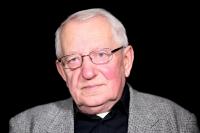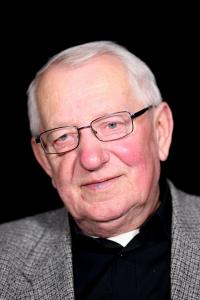The worst thing is meeting an idiot

Download image
Josef Petrů was born on August 17, 1936 in the village of Loučka in the Zlín region. The parents had a modest farm. At the age of eight, he experienced the bombing of Zlín with his father. In April 1945, he witnessed the burning and theft of seven homesteads in Loučka. The Gestapo thus retaliated against the guerrillas who had previously shot its officers. After another guerrilla attack on the German transport, the Gestapo announced that it would exterminate the village on May 2. The criminal commando was driven away by Romanian soldiers who came with the liberating army. Josef Petrů witnessed heavy fighting with the German army, which dug trenches over Loučka. The grenades fell into the village and severely damaged it. At the age of fifteen he went to Gottwald, first to study, then to mechanical engineering. After the war, he returned to Loučka, commuted to work in the engineering works in Gottwaldov, where he worked in the development department. As a young man, he believed in communist ideology, but later condemned it. He told children in schools about his experiences from the war and his attitudes.

